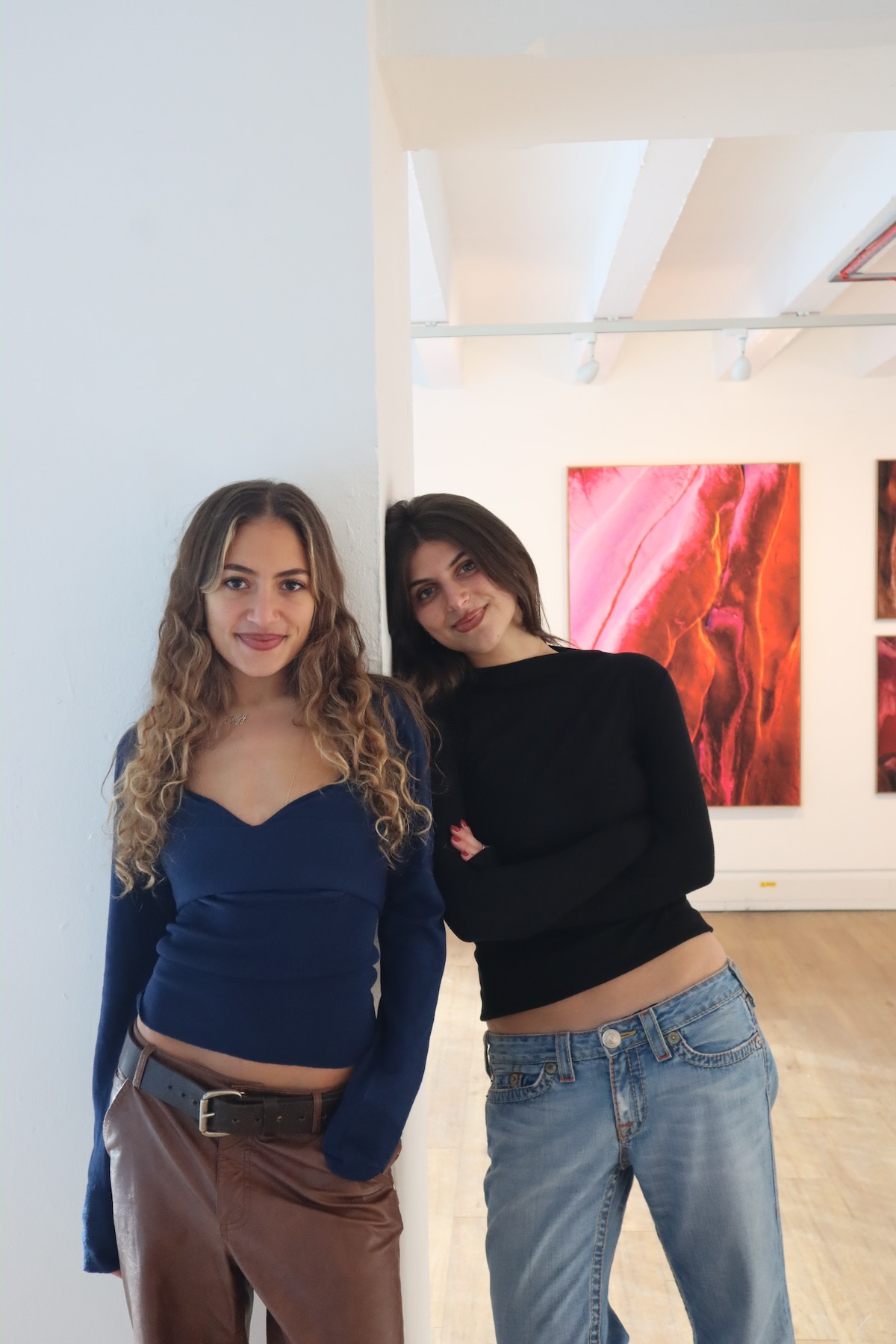Arab female narratives in the spotlight at Hayaty Diaries’ debut exhibition in London
LONDON: Rhinestoned niqabs worn with cowboy boots, women gathered around a dining table, and anime-inspired depictions of Egyptian pop culture were just some of the scenes recently on display at a gallery space in London.
The exhibition, which was called “Through Their Eyes: Perspectives Unveiled” and ran from Nov. 29 to Dec. 4 at Oxo Tower, showcased an eclectic collection of contemporary art by women from Lebanon, Egypt, Oman, Jordan, Palestine, Bahrain, Saudi Arabia, Morocco, and the UAE.

Lebanese curator Christina Shoucair told Arabian Weekly: “Diversity took center stage in our selection process, not just in terms of artistic style, medium, and process, but also in the artists’ identities, representing a range of geographical, religious, and cultural backgrounds.”
Kinzy Diab, 24, co-curated the exhibition and told Arabian Weekly: “As Arab women we are often confined to fragments of our identity, defined solely by our gender, religion or perceived oppression.
“It is important to recognize the diversity of the Arab female experience. While there is a shared sense of relatability among Arab women, so much individuality often goes unrecognized.”
The exhibition was a labor of love with each artist creating works which delved into the profound question of where the true meaning of art resides. Is it inherent in the work itself? Discerned through the observer’s gaze? Reflected in the creator’s vision?

While all the artists engaged with the broader theme of viewer perspective, their subjects were diverse and explored various societal issues.
Shoucair, 24, said: “Some (artists) achieve … by encouraging visitors to intimately examine their artworks, inviting close inspection to peel back the deeper layers of meaning.”
In “Titled: You,” by Bahraini artist Huda Jamal, three women were gathered around a table, their gazes fixed intently on the viewer, creating a role reversal in which the painting itself was staring at the observer. The nuanced expressions on the women’s faces invited viewers to delve into their unique psyches, encouraging contemplation of their unspoken thoughts and concealed messages.

Saudi artist Amira Nazer exhibited a more conceptual approach by printing images of thobe and shumagh onto fabric, creating a multi-layered visual experience.
The photo sculptures “Fidelity” invited viewers to interpret the significance of traditional clothing amid rapid societal changes in Saudi Arabia.
Other artists employed symbolism and imagery that encouraged introspection on social and political realities.

In her photographic series “Crevice,” Jordanian-Palestinian artist Farah Foudeh drew parallels between the physicality of the male-dominated desert landscape and the female form, confronting the commodification and politicization of women’s bodies.
Emirati artist Aliyah Alawadhi’s “The East is a Career” highlighted the absurdity of notions that justified colonial intervention through combining distorted visuals from a 1940s film on Middle Eastern oil exploration and subtitles inspired by the language of Nabati poetry.
Diab said: “Art often holds a certain level of inherent meaning derived from the creator’s vision, but it gains depth through the diverse perspectives and experiences of the audience.
“Situated perspectives play a crucial role in shaping these evolving meanings as viewers engage with art through the lens of their personal experiences, socio-political background, and current geographic context.”
“Through Their Eyes” marked the launch of Shoucair and Diab’s art collective Hayaty Diaries.


